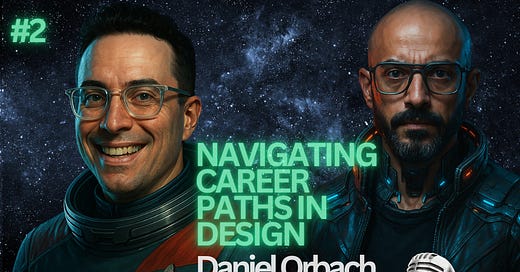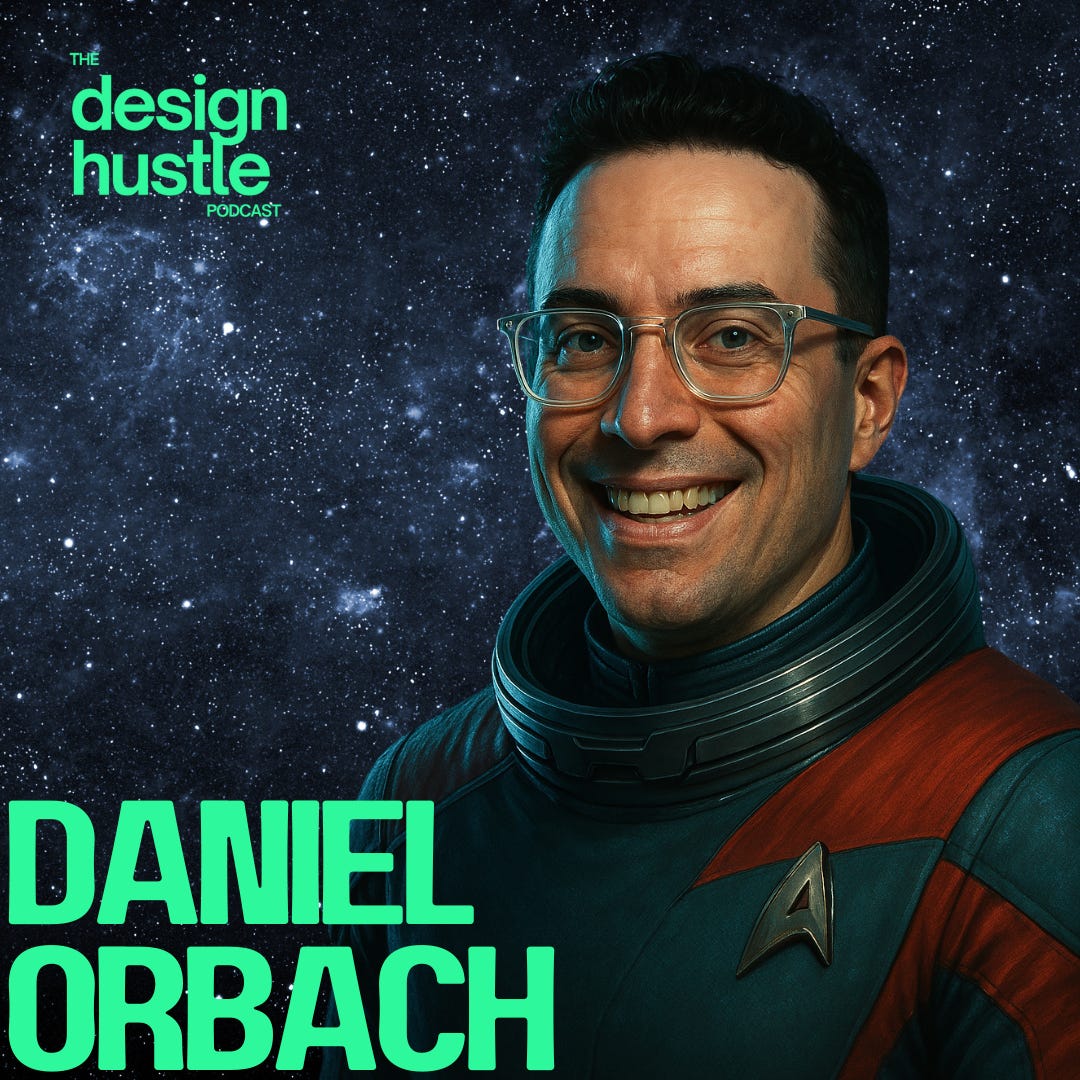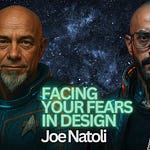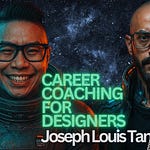Overview
In this conversation, Daniel Orbach shares his journey from a first-generation American to a successful designer, discussing his unique path into design education, the influence of music, and his experiences at notable companies like Frog and McKinsey. He emphasizes the importance of values in career decisions and the evolving culture within consulting firms. In this conversation, Daniel Orbach discusses the importance of a bottom-up approach in design, emphasizing the need to understand customer problems before proposing solutions. He shares insights on navigating career paths in design, the significance of talent-company fit, and the evolution of design roles from junior to director levels. Daniel highlights the critical roles of mentorship and sponsorship in professional growth and encourages individuals to pursue passions outside of design to enhance their creativity and collaboration skills.
About the guest
Daniel brings executive design leadership to JP Morgan Chase, where he directs the Small Business Credit Cards design organization, overseeing multidisciplinary teams of designers, content specialists, and researchers.
His background includes a significant tenure at McKinsey Design, where he spearheaded strategic initiatives spanning government and enterprise clients, with particular expertise in energy innovation and public service transformation.
Beyond his professional accomplishments, Daniel remains deeply committed to talent development, focusing on building exceptional design teams and mentoring emerging design leaders who will shape the industry's future.
https://www.linkedin.com/in/daniel-orbach-74521435/
Podcast Summary
Daniel Orbach’s Background (00:01 - 02:31)
Executive Design Director at JP Morgan Chase, previously at McKinsey and Frog.
First-generation American, family immigrated from Israel and Austria.
Grew up in an affluent Chicago suburb with little exposure to design.
Discovered design late but found a program at the University of Cincinnati that didn’t require a portfolio.
Early Exposure to Design (03:02 - 07:56)
Initially pursued music and engineering before discovering design.
Inspired by IDEO’s shopping cart redesign video.
Realized design combined creativity, problem-solving, and hands-on work.
Work Experience & Career Progression (09:44 - 17:28)
Joined Frog through a school portfolio selection process.
Worked at Moment, then McKinsey for over five years.
Experienced McKinsey’s rapid growth and cultural changes.
Consulting vs. In-House Design Roles (19:26 - 22:29)
Consulting starts with answers and works backward, while design is bottom-up.
Consultants structure recommendations and predict ROI over multiple years.
The Importance of Storytelling & Soft Skills (25:47 - 28:36)
Success in design careers requires strong storytelling and communication skills.
Building relationships and clearly articulating ideas are key to career growth.
Specialization & Finding the Right Fit (30:24 - 32:16)
Matching skills to company needs is crucial (e.g., a zoologist at McKinsey is unlikely).
Thinking in structured outlines and communicating ideas effectively
Discussion takeaways
Daniel's family background shaped his perspective on education and design.
Music played a significant role in his creative development.
The importance of finding a design program that fits individual needs.
Internships can lead to unexpected opportunities in one's career.
Living by one's values can lead to better career outcomes.
Consulting firms like McKinsey are not monolithic; experiences vary widely.
Designers bring unique problem-solving approaches to consulting.
The transition from design education to professional practice can be challenging.
Networking and connections are crucial in the design community. Design should start with understanding customer needs.
Portfolios are essential for landing design jobs.
Mentorship and sponsorship are both crucial for career growth.
Assess your skills against the company's strategy.
Strong beliefs should be held loosely to adapt to new evidence.
Networking is key in the job application process.
Structure your thinking to communicate effectively in interviews.
Experience in various conditions is necessary for leadership roles.
Cultivating relationships can open doors for opportunities.
Pursuing passions outside of work can enhance professional skills.











Share this post